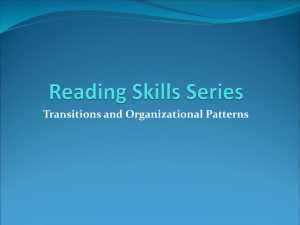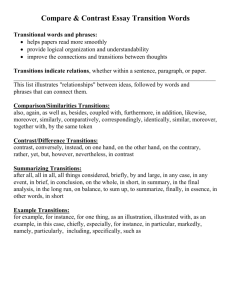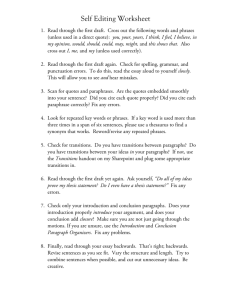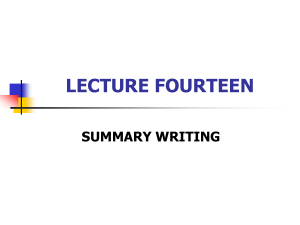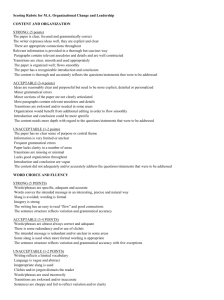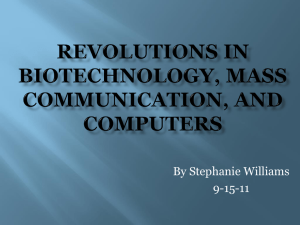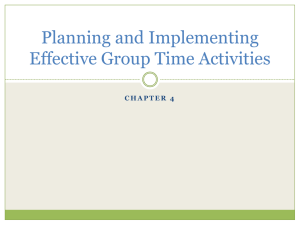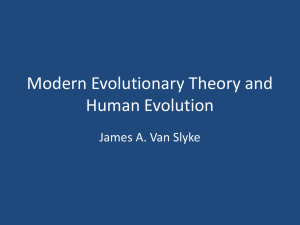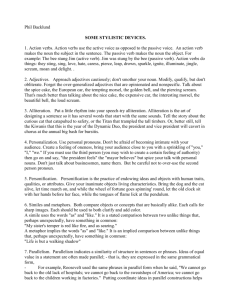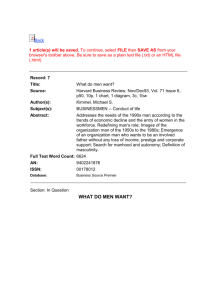Making Transitions and Connections
advertisement
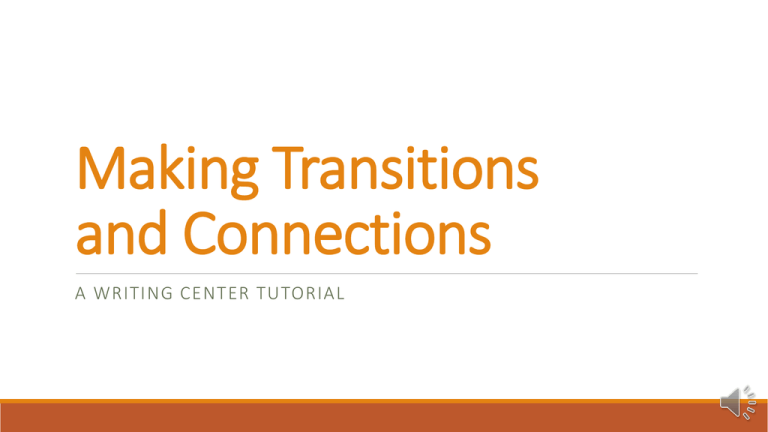
Making Transitions and Connections A WRITING CENTER TUTORIAL What is a transition? A transition is a word or phrase that helps to link one idea to another one logically. Often, these transitions help to link one sentence to the next sentence or one paragraph to the next paragraph. Transitions are common words and phrases that link ideas in particular ways to make specific points. What is a connection? A connection is a repeated element (often a noun, a pronoun, or a verb) that helps to link ideas in your writing. Writers make connections when they reuse words (or synonyms/antonyms for those words) in order to link sentences and paragraphs logically. Example 1 The Governor made a speech in which he said that we would all have to make some “sacrifices” in order to help the state through the current financial crisis. In other words, he was warning that we are facing some tax increases and budget cuts in the near future. Transition: In other words (clarification, example) Connection 1 Connection 2 The Governor he “sacrifices” tax increases and budge cuts Example 2 Parents and teachers often fear that playing video games will damage children’s intellectual abilities. However, a number of recent studies have shown that these types of games can actually improve spatial reasoning and other mental skills in young people. Transition: However (contrast) Connection 1 Connection 2 video games games damage improve children young people intellectual abilities spatial reasoning and other mental skills Common Transitional Words and Phrases Addition: additionally, furthermore, also, and Comparison: likewise, similarly, in the same way Contrast: however, on the one hand/on the other hand, nevertheless, but Time/Sequence: when, after, first/second, finally, then Cause: because, due to, for this reason Effect: therefore, thus, as a result, consequently Example: for example, for instance, specifically, in fact Clarification/Repetition: in other words, that is, in effect Summary: to summarize, all in all, in short Adding helpful transitions and connections Cell phones became widely available to the American public in the 1990s with the emergence of second-generation mobile technology. This is why the 1990s are often considered the beginning of a new era. Mobile phone technology existed before then. They were available as long ago as the 1950s. Most were installed in cars. Only wealthy people had them. The first modern cellular system was built in Tokyo in the late 1970s. The ones we use today are based on that. Cell phones became widely available to the American public in the 1990s with the emergence of second-generation mobile technology. The development of these systems marked the beginning of a new era of mobile phone service. However, mobile phone technology existed before the 1990s. In fact, this kind of technology was available as long ago as the 1950s. Although mobile phones did exist before the 1990s, the vast majority of them were installed in cars, and only the wealthy had access to them. After the first modern cellular system was built in Tokyo in the late 1970s, the mobile phone systems we use today were based on that model. Review Transitions=Words and phrases that link ideas. Full lists are available in most writing handbooks. Connections=Repeated, reworded, or replaced words and phrases that link ideas. Writing Center Kearns 203 (843) 349-2937
